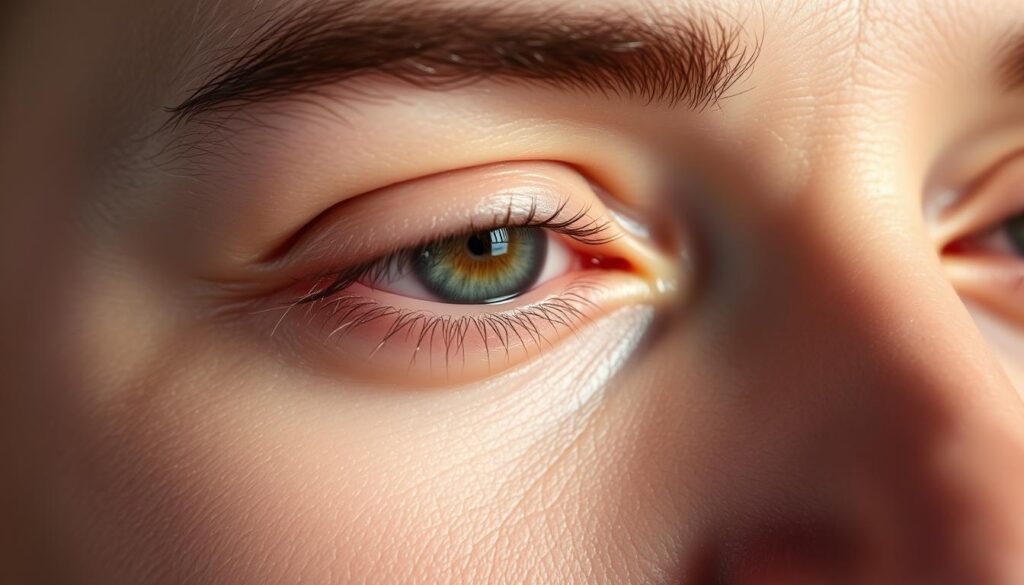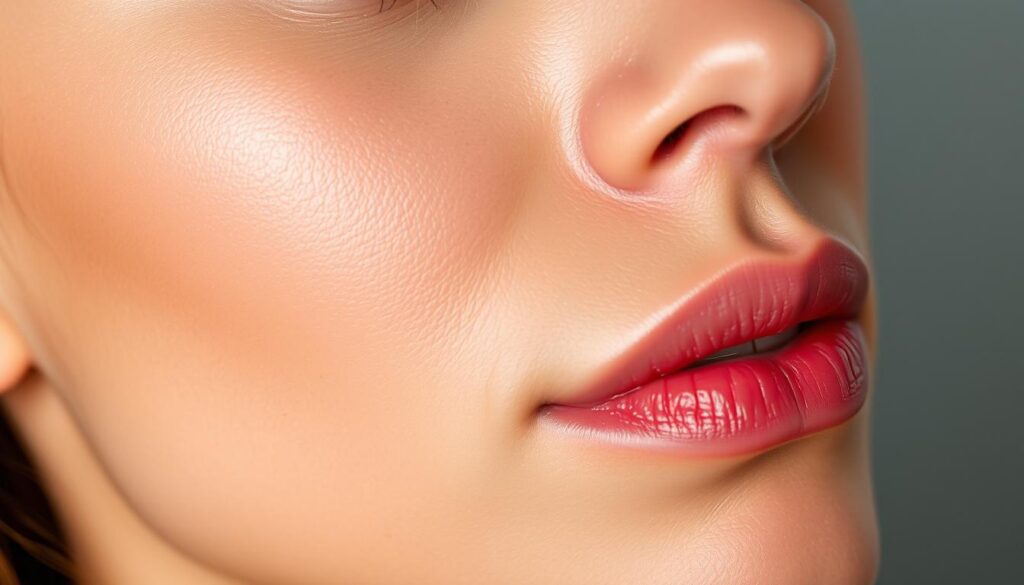When it comes to maintaining youthful and healthy skin, many wonder what plays a bigger role: your genes or your daily habits. While your DNA sets the foundation, external factors like your lifestyle and environment have a significant impact on how your skin ages. According to Dr. Pignolo, genetics account for about 20% of longevity, leaving the rest to how you care for yourself and your surroundings1.
Your skin’s health is influenced by a mix of hereditary and environmental factors. For example, genes like MC1R affect pigmentation and melanin production, which protect against UV rays2. However, sun exposure is responsible for up to 80% of visible signs of aging, such as wrinkles and spots1. This shows that while your genes play a role, your daily choices matter even more.
Understanding your unique genetic blueprint can help you tailor your skincare routine for better results. From collagen production to moisture retention, your genes influence how your skin responds to care2. This article will explore how both genetics and lifestyle shape your skin’s aging process, helping you make informed decisions for a healthier, more radiant complexion.
Introduction to the Genetics vs. Skincare Debate
Your skin’s journey through time is guided by both your DNA and lifestyle choices. While your genes set the foundation, external factors like sun exposure and diet play a significant role in how your skin ages3. This debate highlights the balance between inherited traits and daily habits in maintaining a youthful appearance.
Your DNA and Lifestyle: Setting the Stage
Your unique genetic makeup influences everything from your skin’s moisture retention to its ability to repair damage. For example, variants in the MC1R gene can increase the risk of severe photoaging by 40%3. However, your daily habits, like wearing sunscreen and eating nutrient-rich foods, can counteract these effects.
Research shows that intrinsic factors, such as your genes, account for 20-30% of skin aging, while extrinsic factors, like sun exposure, make up 70-80%3. This means your lifestyle choices have a greater impact on your skin’s health than your genetic predisposition.
Why Understanding Aging Matters for Your Skin
Knowing your genetic background helps you tailor your skincare routine for better results. For instance, individuals with darker skin tones have a natural SPF of 13.4 due to higher melanin content, delaying signs of aging by 10 to 20 years compared to lighter skin types4.
Early interventions, like using antioxidant-rich products, can prevent visible signs of aging, such as wrinkles and spots. By combining genetic insights with personalized care, you can achieve healthier, more radiant skin.
Upcoming sections will explore how genetic research and practical skincare solutions can help you make informed decisions for long-term skin health.
The Role of Genetics in Determining Longevity
The debate about what shapes your lifespan often centers on your genes. While lifestyle choices like diet and exercise are important, your genetic predisposition plays a significant role in how long you live. Research shows that genes account for about 20-30% of lifespan variability5.
Twin Studies and Genetic Evidence
Twin studies provide strong evidence of the genetic influence on longevity. Identical twins, who share 100% of their genes, tend to have more similar lifespans than fraternal twins, who share only 50%5. This suggests that genes are a core factor in determining how long you live.
For example, a study found that increased activity in genes related to DNA repair and cell replication was linked to a longer lifespan6. These findings highlight the importance of understanding your genetic makeup for better health outcomes.
Influence of Long-Lived Ancestors on Your Lifespan
Your family history can also provide clues about your lifespan. Research shows that having long-lived parents or grandparents increases your chances of living a longer, healthier life5. This is because certain gene variations associated with longevity are often passed down through generations.
For instance, centenarians—people who live to 100 or older—often carry specific gene variants that protect against age-related diseases6. These genes play a key role in maintaining cellular health and reducing the risk of conditions like heart disease and diabetes.
| Factor | Impact on Longevity |
|---|---|
| Genes | 20-30% of lifespan variability |
| Lifestyle | 70-80% of lifespan variability |
| Family History | Increases chances of longevity |
While your genes set the stage, your daily habits and skincare routine still play a crucial role in maintaining your health and appearance. By combining genetic insights with a healthy lifestyle, you can make informed choices for a longer, more vibrant life.
Understanding Skin Aging Through Genetic Factors
Your skin’s aging process is shaped by a mix of internal and external factors. While lifestyle choices like diet and sun protection matter, your genes play a significant role in determining how your skin ages. Understanding these genetic influences can help you tailor your skincare routine for better results.
Genes Impacting Collagen and Elastin Production
Collagen and elastin are essential proteins that keep your skin firm and elastic. Variations in genes like COL1A1 can affect collagen production, leading to sagging skin and wrinkles7. Similarly, elastin production is influenced by genetic factors, which determine how well your skin bounces back after stretching.
Research shows that certain genetic variations can speed up or slow down the breakdown of these proteins. For example, individuals with specific SNPs in the SOD2 gene may experience reduced antioxidant enzyme activity, increasing the risk of wrinkles7. This highlights the importance of understanding your genetic predisposition for targeted skincare.
How Genetic Predispositions Influence Pigmentation
Your genes also play a key role in determining your skin’s color and how it responds to sun exposure. Variations in the MC1R gene, for instance, can increase the likelihood of developing sunspots and freckles7. This gene affects melanin production, which protects your skin from UV damage.
Some people are genetically predisposed to conditions like hyperpigmentation or age spots. For example, SNPs in the MTHFR gene can lead to lower folate levels, making skin more susceptible to aging and uneven tone7. Knowing your genetic background can help you choose the right treatments to address these issues.
| Gene | Effect on Skin |
|---|---|
| COL1A1 | Influences collagen production, affecting firmness |
| MC1R | Regulates melanin, impacting pigmentation |
| SOD2 | Affects antioxidant activity, reducing wrinkles |
By understanding your genetic makeup, you can make informed decisions about your skincare routine. Whether it’s boosting collagen or addressing pigmentation, personalized care based on your genes can lead to healthier, more radiant skin.
Genetics vs. Skincare: How Much Does DNA Influence Aging?
Your skin’s appearance is shaped by a combination of internal and external elements. While your genes set the foundation, your daily habits and environment play a significant role in how your skin ages. Research shows that genetic factors account for about 20% of visible aging, such as wrinkles and sagging8.
Breaking Down the Genetic Impact on Your Skin
Your genes influence key aspects of your skin, like collagen production and moisture retention. For example, variations in the COL1A1 gene can affect collagen levels, leading to looser skin and wrinkles9. Similarly, genes like MC1R impact pigmentation, making some people more prone to sunspots9.
While your genetic predisposition plays a role, lifestyle choices like sun protection and diet account for up to 80% of visible aging8. This means that even if your genes aren’t ideal, effective skincare can still make a significant difference.
Studies show that daily SPF use reduces the risk of premature aging and skin cancer8. Additionally, treatments like retinoids can boost collagen production and improve skin texture8. By understanding your genetic makeup, you can tailor your routine for better results.
For instance, individuals with drier skin types may benefit from hydrating products, while those with oily skin might focus on balancing sebum production9. Personalized care based on your genes and lifestyle can help you achieve healthier, more radiant skin.
The Science Behind Skin Structure and Function
Your skin’s health and resilience depend on its structure and the proteins that keep it strong. The skin barrier, composed of layers like the epidermis and dermis, acts as a shield against environmental damage. This barrier is essential for retaining moisture and protecting against harmful substances10.
Your Skin Barrier and Protein Production
The skin barrier relies on proteins like collagen and elastin to maintain firmness and flexibility. Collagen provides structural support, while elastin allows your skin to bounce back after stretching. Over time, the production of these proteins decreases, leading to sagging and wrinkles10.
At the cellular level, protein production is influenced by both genetic and environmental factors. For example, declining levels of the microRNA mir-146a are linked to reduced collagen levels, which accelerates skin aging11. This highlights the importance of maintaining healthy protein levels for youthful skin.
Environmental stressors like UV radiation and pollution can compromise the skin barrier. UV exposure, for instance, leads to skin thickening and chronic inflammation, reducing its ability to repair damage10. A strong skin barrier is crucial for preventing these effects and maintaining overall skin health.
By understanding the science behind your skin’s structure and function, you can take steps to protect and enhance its natural defenses. From using antioxidant-rich products to avoiding harmful environmental factors, these choices can help you maintain a healthy, radiant complexion.
Environmental Influences on Skin Health and Aging
Your skin’s health is deeply influenced by the world around you, from the sun’s rays to the air you breathe. While your genes play a role, external factors like UV exposure and pollution can accelerate the aging process. Understanding these influences helps you take steps to protect your skin and maintain its vitality.

The Effects of Sun Exposure and UV Damage
Prolonged sun exposure is one of the biggest threats to your skin. UV rays break down collagen and elastin, leading to wrinkles, sagging, and age spots12. This damage also increases the risk of skin cancer, making sun protection essential13.
Even short periods of sun exposure can have long-term effects. For example, UV radiation damages skin cells, causing DNA mutations that may lead to melanoma14. Using sunscreen daily and wearing protective clothing can significantly reduce these risks.
Pollution, Toxins, and Lifestyle Factors Affecting Your Skin
Pollution and environmental toxins also take a toll on your skin. Airborne particles can clog pores, leading to acne and irritation. They also generate free radicals, which accelerate aging and cause dullness12.
Your lifestyle choices play a crucial role in combating these effects. For instance, a diet rich in antioxidants can neutralize free radicals, while regular cleansing removes pollutants from your skin’s surface13.
Here are some practical tips to protect your skin from environmental damage:
- Use a broad-spectrum sunscreen with SPF 30 or higher daily.
- Wear hats and sunglasses to shield your face from UV rays.
- Cleanse your skin thoroughly to remove pollutants.
- Incorporate antioxidant-rich products into your routine.
By understanding these external factors, you can take proactive steps to keep your skin healthy and radiant.
Lifestyle Choices for Optimal Skin Health
Your daily habits play a crucial role in maintaining a youthful and radiant complexion. From the foods you eat to how you manage stress, these choices directly influence your skin’s health and appearance. By making mindful adjustments, you can support your skin’s natural processes and achieve long-lasting results.
Diet and Nutrient-Rich Foods for Radiant Skin
What you eat has a direct impact on your skin’s radiance. Foods rich in antioxidants, like leafy greens and citrus fruits, help neutralize free radicals that cause damage15. Fatty fish, such as salmon, provide omega-3 fatty acids that support skin repair and hydration16.
High sugar intake can lead to glycation, which damages collagen and elastin, resulting in sagging and wrinkles15. Instead, focus on a balanced diet with plenty of plant-based foods and healthy fats to maintain firm, glowing skin.
Managing Stress and Embracing Active Living
Stress can take a toll on your skin, leading to breakouts and dullness. Practices like meditation and yoga can help reduce stress levels, promoting a healthier complexion16. Regular exercise also boosts circulation, delivering essential nutrients to your skin cells15.
Lack of sleep accelerates signs of aging, such as fine lines and wrinkles16. Prioritize quality sleep and an active lifestyle to keep your skin looking its best.
Here are some actionable tips to enhance your skin health:
- Incorporate antioxidant-rich foods like berries and nuts into your meals.
- Stay hydrated by drinking plenty of water throughout the day.
- Practice stress management techniques, such as deep breathing or journaling.
- Engage in regular physical activity to improve circulation and skin tone.
By aligning your lifestyle with your skin’s needs, you can achieve a healthier, more vibrant appearance. Small changes today can lead to significant results over time.
Personalizing Your Skincare Routine Based on Genetics
Understanding your unique skin needs can transform your daily routine into a personalized skincare journey. Your skin type and genetic predispositions play a significant role in how your skin responds to products and treatments. By assessing these factors, you can create a routine that works best for you.
Assessing Your Skin Type and Genetic Predispositions
Your skin type is influenced by factors like moisture levels, oil production, and sensitivity. Genetic testing can reveal predispositions to conditions like eczema, psoriasis, and acne, helping you choose the right treatments17. For example, variations in the FLG gene can increase the risk of eczema, leading to dry and itchy skin18.
Knowing your genetic background allows you to tailor your routine for better results. If your genes suggest lower collagen levels, products with peptides and retinol can help maintain firmness17. Similarly, antioxidant-rich serums are beneficial for those with variations in the SOD2 gene18.
Professional evaluations can provide accurate insights into your skin’s needs. Dermatologists can recommend treatments based on your genetic makeup, ensuring you get the most out of your routine19.
Adapting Your Routine for Optimal Results
Personalized care starts with understanding your skin’s unique needs. Here are some tips to adapt your routine:
- Use products formulated for your specific skin type, such as hydrating creams for dry skin or oil-free solutions for oily skin.
- Incorporate collagen-boosting ingredients like vitamin C and retinol if your genes suggest lower collagen production17.
- Protect your skin from sun damage by using broad-spectrum sunscreen daily, especially if you’re genetically prone to sun sensitivity18.
Regular skin examinations can help you stay ahead of potential issues. By combining genetic insights with a consistent routine, you can achieve healthier, more radiant skin.
| Genetic Factor | Skincare Recommendation |
|---|---|
| Lower collagen levels | Use peptides, retinol, and vitamin C |
| Sun sensitivity | Daily SPF and protective clothing |
| Eczema predisposition | Hydrating creams and gentle cleansers |
Personalized skincare isn’t just about products—it’s about understanding your skin’s unique needs. By leveraging genetic insights, you can create a routine that keeps your skin healthy and glowing.
Preventative Measures and Professional Skin Procedures
Protecting your skin from aging requires a mix of daily habits and professional care. By combining preventative steps with advanced treatments, you can minimize damage and maintain a youthful appearance. Let’s explore how these strategies work together to keep your skin healthy and radiant.
Effective Use of Sunscreen and Protective Clothing
One of the most important steps in preventing skin aging is protecting it from the sun. Prolonged exposure to UV rays can lead to wrinkles, age spots, and even skin cancer20. Using a broad-spectrum sunscreen with SPF 30 or higher daily is essential for shielding your skin from damage21.
Wearing protective clothing, like UPF-rated hats and long sleeves, adds an extra layer of defense. These measures are especially important for individuals with light skin, who are more prone to sun damage20. By taking these steps, you can reduce the risk of premature aging and maintain healthier skin.
Exploring Chemical Peels, Laser Treatments, and Cryotherapy
Professional procedures can address existing signs of aging and improve skin texture. Chemical peels, for example, remove damaged outer layers, revealing smoother, younger-looking skin20. Laser treatments target deeper layers to stimulate collagen production and reduce wrinkles21.
Cryotherapy is another effective option, using liquid nitrogen to diminish age spots quickly with minimal downtime20. These treatments work best when combined with daily protection, ensuring long-lasting results. Consulting a dermatologist can help you choose the right procedure based on your skin type and condition.
By integrating preventative measures with professional care, you can slow down the aging process and achieve a healthier, more radiant complexion. Whether it’s sunscreen, protective clothing, or advanced treatments, these steps are essential for maintaining your skin’s vitality.
Insights from Experts and Clinical Research
Dermatology leaders and clinical research provide valuable insights into the relationship between genes and skin health. Experts like Dr. Pignolo emphasize that while your genes set the foundation, your daily habits and treatments play a significant role in maintaining a youthful appearance22.
What Dermatology Leaders Are Saying
Renowned dermatologists highlight the importance of understanding your genetic predisposition to tailor skincare routines effectively. For example, variations in the COL1A1 gene can influence collagen levels, making certain treatments more effective23.
Clinical studies show that personalized care based on genetic insights can yield better results. For instance, treatments like Epicelline have been proven to reverse epigenetic changes associated with aging, improving skin texture and firmness23.
Experts also stress the need for a balanced approach. While genes account for 20-30% of skin aging, lifestyle choices like sun protection and diet make up the remaining 70-80%22. This balance is key to achieving long-term skin health.
Here are some practical tips from dermatologists:
- Use products tailored to your skin type for optimal results.
- Incorporate treatments like retinoids to boost collagen production22.
- Protect your skin from UV damage with daily sunscreen use23.
By combining professional insights with personalized care, you can address your skin’s unique needs effectively. This approach ensures healthier, more radiant results over time.
Emerging Trends in Anti-Aging Dermatology
The field of dermatology is evolving rapidly, with groundbreaking treatments that leverage genetic insights to combat aging. These innovations are transforming how we approach skincare, offering personalized solutions tailored to your unique needs.
Innovative Treatments Driven by Genetic Research
Recent advancements in genetic research have paved the way for cutting-edge treatments. For example, gene-based therapies target specific markers linked to aging, such as collagen production and inflammation24. These therapies aim to repair damage at the cellular level, restoring your skin’s youthful appearance.
Another breakthrough involves advanced biomarkers that predict how your skin will age. By analyzing these markers, dermatologists can recommend treatments that address your specific concerns, such as wrinkles or age spots25. This personalized approach ensures better results and long-term skin health.
The Future of Personalized Skincare Solutions
The future of skincare lies in customization. Emerging technologies like AI-driven skin analysis and DNA testing are making it easier to create routines tailored to your genetic makeup. For instance, if your genes suggest lower collagen levels, products with peptides and retinol can help maintain firmness24.
Clinical trials are also exploring the use of epigenetic therapies to reverse signs of aging. These treatments focus on modifying gene expression, offering a promising solution for those seeking long-lasting results26.
| Innovative Treatment | Benefit |
|---|---|
| Gene-based therapies | Targets specific aging markers for repair |
| Advanced biomarkers | Predicts aging patterns for personalized care |
| Epigenetic therapies | Modifies gene expression to reverse aging |
As these trends continue to develop, they will redefine how we approach skincare. By combining genetic insights with advanced treatments, you can achieve healthier, more radiant skin that defies the aging process.
Conclusion
Your skin’s vitality is shaped by both inherited traits and the choices you make daily. While genes account for about 20% of visible aging, your lifestyle and skincare routine play a far greater role27. Understanding your unique genetic makeup can help you tailor your care for better results, but proactive measures like sun protection and a balanced diet are equally crucial.
Research shows that variations in genes like COL1A1 influence collagen levels, affecting firmness and elasticity27. However, daily habits like using sunscreen and antioxidant-rich products can counteract these effects28. By combining scientific insights with practical steps, you can achieve healthier, more radiant skin.
Looking ahead, advancements in personalized care promise even better solutions. From gene-based therapies to innovative treatments, the future of skincare is bright. By staying informed and proactive, you can maintain your skin’s health and vitality for years to come.



